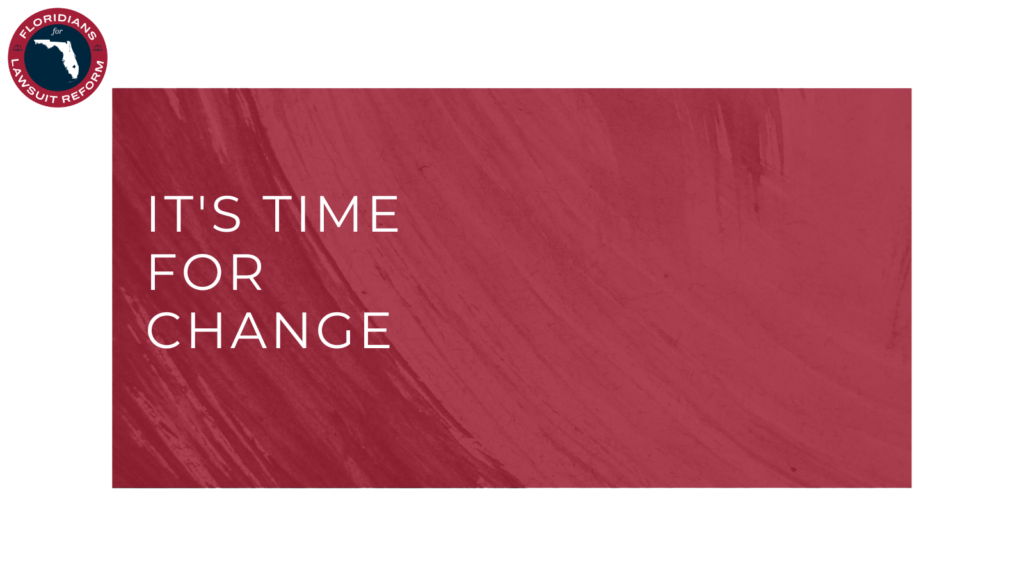
Florida’s homeowner insurance marketplace has collapsed — and that was before Hurricane Ian. In 2022, seven Florida homeowner insurance companies went into insolvency or withdrew from the state, with twelve property and casualty companies overall in receivership.
Prior insurance cycles in the wake of catastrophic hurricanes show that Florida homeowner and property insurance premiums will rise another 25%-50%, or more, in the coming year without a restructuring of the marketplace. These costs are unsustainable for homeowners, condominium associations and businesses, who paid premium increases of up to 50% in the past year (many coastal properties saw 100% increases). In many cases, insurance will become unavailable.
Florida’s response to insuring the risk of hurricanes when the private market fails was to create the state owned, not-for-profit Citizens Property Insurance Corporation, which provides lower cost homeowners, property and hurricane insurance. Citizens’ current policy count is 1,047,000, more than doubling in the past year as Floridians flocked to Citizens after insurer insolvencies and rate hikes. Hurricane Ian will push Citizens policy count toward 2 million, an unsustainable risk for the state.
A financial catastrophe underlies Citizens’ structure: If it does not have enough premiums in reserve and reinsurance to pay claims, then Florida’s individual citizens will be levied a surcharge on their insurance policies to pay for losses. This “tax” will be levied whether your property suffered damage or not. If another major hurricane like Ian or Andrew hits Miami-Dade, Broward or Palm Beach counties, the state’s real estate market and economy will collapse.
Florida’s reactive approach to hurricane insurance stands in contrast to California’s proactive approach insuring the risk of earthquakes. California created the California Earthquake Authority (CEA), a non-governmental organization that sells earthquake insurance policies through participating insurers.
The CEA has 25 participating insurers who provide homeowners, condominium, mobile homes and renters insurance with earthquake coverage. By spreading the risk amongst 25 insurers, California has assured its citizens that affordable earthquake insurance is available — and assured insurance companies that by taking a small portion of the risk in the state, no single carrier should fail due to a catastrophic earthquake. Further, should a catastrophic earthquake occur, because the CEA is not a direct insurer, the remainder of the state’s citizens cannot be levied a surcharge or tax for claims they did not incur.
When Citizens’ policy count rises too high, the company goes through a process called depopulation. In this process, Citizens freely hands off its customers, in lots up to 50,000, to other insurance carriers, along with financial incentives. In the early stages, the depopulation process appears to work as Citizens sheds policyholders and risk. However, history has shown that most companies that take policyholders from Citizens are the first to fail after the next major hurricane. Generally, these are newly formed companies that are undercapitalized and unable to meet the deluge of claims after a major hurricane — the same sort of companies going into insolvency now.
Florida needs to reorganize its homeowner and property insurance marketplace. The California Earthquake Authority presents a more sustainable marketplace model, one that can be emulated in Florida. Interestingly, insurance companies that participate in the CEA include Allstate, Farmers, Liberty Mutual, Nationwide and State Farm. All of these companies withdrew from writing new homeowners and hurricane insurance in Florida in the wake of the 2004 and 2005 hurricane seasons (most continue to insure previously written policies on renewal).
In order to bring the nation’s largest insurance companies back into the Florida market, there needs to be a carrot and stick approach: The nation’s largest insurance companies are also the leading writers of auto insurance in Florida. It’s their cash cow in the sunshine state. Florida’s elected officials and regulators must make it clear that unless insurance companies offer new homeowners insurance with hurricane coverage, they cannot be allowed to write personal auto insurance in the state.
A new round of Citizens’ depopulation that includes the nation’s largest insurance companies will be a tremendous win for Floridians and a stabilizing factor in our economy. Initially capping the number of policies an insurer takes off of Citizens’ books at 50,000 and incentivizing 25 well-capitalized carriers to participate will fully depopulate Citizens and eliminate the risk for the state. By spreading only a sliver of the risk to each insurer, who in turn spread policyholders throughout the state, the impact of any large hurricane is minimized.
Florida cannot continue, through Citizens, to be the state’s primary property insurer. The risk of economic collapse is too great. Restructuring the Florida insurance market is imperative to the economic health of our state and its citizens.
Palm Beach Gardens resident Douglas A. Kahn is Managing Director of Florida Risk Management LLC and National Risk Management LLC, an insurance agency and consulting firm.
